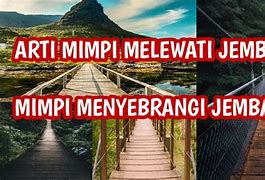
Jambi Indonesia Map
Read the full profile
Jambi Malay of Indonesia
Learn more about the Jambi
Joshua Project People Profile Jambi History Wikipedia Jambi Travel Blog Jambi Province Jambi Language
© Copyright 2008 - 2024 YayImages all rights reserved.
A campaign for hidden paradise tourism in Jambi has been launched. Tourists are invited to enjoy various tourist objects that apply health protocols. The aim of this campaign is to promote the beautiful Jambi tourist destinations and their superior products. The Jambi Exploration Campaign-The Hidden Paradise in Jambi is part of the Indonesian National Proud Movement (Gernas BBI) and Proud Tourism #diIndonesiaAja (BBWI) program which focuses on raising tourism potential and regional superior products. More than that, what Jambi has done can be an example for other provinces. This spirit…
Kaco means glass in the local language. The clear water in this lake is clear as glass. Like pearls in the middle of jungle, that is Kaco Lake. Hidden among grove of Kerinci Seblat National Park (TNKS) of Kerinci Regency, Jambi Province, this lake has clear water. The beauty of Kaco Lake appears during the full moon because it emits light that can illuminate the surrounding area. It was so clear so that Kaco Lake able to reflect even dim light at night. Naturally, many travelers struggle to reach Kaco…
Lake Kerinci lies at the foot of Mount Raja, in the district of Kerinci Lake and Keliling Danau District, Kerinci Regency, Jambi Province. In Jambi, Kerinci is the largest lake with an area of 4,200 hectares with a depth of 110 meters, while its height reaches 783 meters above sea level and the diameter along 70 Km. According to geologists, Kerinci Lake is part of the valley in Mount Kerinci. The valley is then formed as a small eruption caused by the volcano and a decrease in the Bukit Barisan…
Kerinci Seblat National Park Kerinci Seblat National Park is one of the largest national parks in Indonesia. Kerinci Seblat protects almost 14,000 sq kilometres of tropical rain forests in central western Sumatra running down the Barisan mountain range and its foothills and covering parts of four provinces. The terrains varies from lowland forests up to the peak of mighty Mt Kerinci at 3,805 m. This national park is a UNESCO World Heritage Site as part of the Rainforest Heritage of Sumatra and one of the most important tiger reserves in the world.…
Search with an image file or link to find similar images
For achievement-minded people on the move TUMI is a performance luxury brand That provides beautifully optimized solutions Because while our competitors only show you where to go We create products that actually take you places Our success is rooted in yours
Untuk orang-orang yang berorientasi pada pencapaian dalam pergerakan TUMI merupakan merek mewah dengan perfoma produk yang luar biasa Yang menyediakan solusi keindahan yang teroptimisasi Karena ketika kompetitor kami hanya menunjukkan kepada and kemana harus pergi Kami menciptakan produk yang benar-benar membawa anda ke berbagai tempat Kesuksesan kami berada dalam diri anda
Most Jambi Malay live in the sparsely-inhabited Jambi Province of eastern Sumatra, Indonesia.
More than half of the Jambi are farmers, supplementing their income by fishing in the rivers near their villages. Most Jambi are poor. Although some Jambi pursue higher education, the number is minimal. Many Jambi have little formal education at all.
The Jambi love batik. In Jambi villages, talented women use wax to create intricate designs on fabric, applying colorful dyes made from plants and berries. Many women wear batik sarongs on a daily basis and use the fabric to tie their babies to them as they go about their daily tasks. Exceptionally beautiful fabric is reserved for weddings.
While the Jambi retain much of their traditional culture, they are open to outside influences. Shopping malls, Pizza Hut and jeans are increasingly common, especially in cities.
The Jambi Malay are known for their strong commitment to Islam. Every Jambi village and nearly every Jambi neighborhood has a building for worship and the teaching of Islam, complete with at least one Islamic teacher. The Jambi Malay are proud that their villages are 100% Muslim.
Yet the Jambi retain many traditional spiritual practices. Just as each village or neighborhood has an elected Islamic leader, there is usually also a dukun, a traditional healer. The dukun intercedes on behalf of his patient with pleas to Allah or to the spirits for healing. Religious leaders also provide mothers with amulets to protect their young children from evil spirits.



